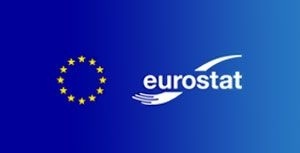Minister for Finance, Prof. Edward Scicluna welcomes the latest figures published by Eurostat that confirm the positive performance registered by the Maltese economy on various fronts including consumer prices, external trade and social indicators.
PRESS RELEASE ISSUED BY THE MINISTRY FOR FINANCE
Indeed, the latest Eurostat inflation figures confirm that, unlike other European Member States including Cyprus, Spain and Greece, Malta is not experiencing deflationary pressures and has recorded a healthy inflation rate of 1.6 per cent in September 2015. This is well in line with the European Central Bank’s (ECB) target rate of close or below 2 per cent over the medium-term and reflects the robust growth recorded by the Maltese economy in the recent years supported by a buoyant labour market, which is in turn boosting private consumption.
With regards to international trade, Eurostat figures show that for the period January to August of this year, Malta has recorded an increase in exports of 8 per cent over the corresponding period of last year. The main contributor to this increase was the rise in exports outside the EU28 Member States in line with Government’s policy to diversify exports by increasing the share of exports outside the EU.
On the social front, one is pleased to note that the latest figures published by Eurostat show that the at-risk-of-poverty or social exclusion rate which was on an increasing trend from 2006 to 2013, rising from 19.5 per cent in 2006 to 24.0 per cent, has not only stabilised but also decreased to 23.8 per cent in 2014.
The government is committed to continue addressing persons who are at risk of poverty or social exclusion in line with the EU 2020 targets. In this regard, the 2016 Budget contains a number of measures aimed at ensuring a better distribution of income focusing on the more vulnerable groups, such as the single earner families with children, youths and the elderly. Indeed, the in-work benefit scheme which has been extended to include those low-income families who are dependent on a single earner; the raising of the tax-free income thresholds for the single, married and parental computations; the reforms to social assistance entitlement, the raising of the minimum pensions for single pensioners and married couples and other initiatives to cater for persons with disabilities, were all measures aimed at reducing the at-risk-of-poverty or social exclusion rate.
Saturday 17th October 2015
